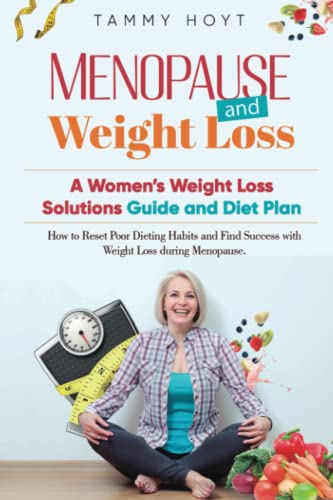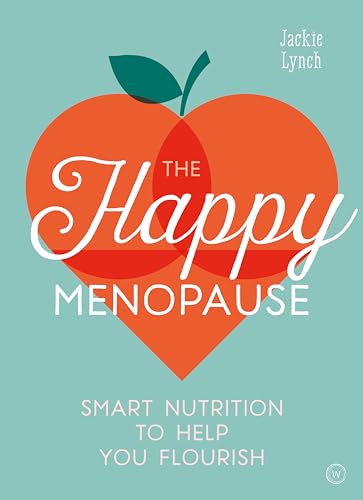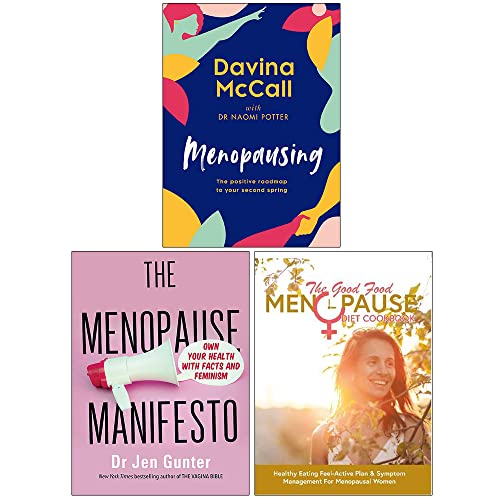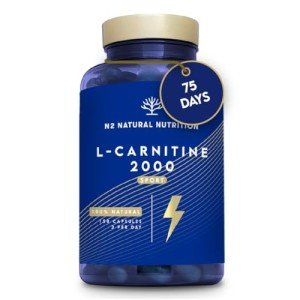When it comes to menopause, change is the name of the game.
Women's bodies are going through a hormonal transformation, and in order to navigate this period with ease, we need to make some changes in our behavior and diet.
Menopause is a significant life transition that can bring various challenges for women. While these changes can be daunting, understanding the potential problems associated with menopause is the first step in managing them effectively. Women should consult with healthcare professionals to explore options for symptom relief, including lifestyle changes, hormonal therapies, and alternative treatments. By taking a proactive approach, women can navigate this transformative phase of life with greater ease and maintain their overall health and well-being. First lets look at the problems menopause can cause then the diet and supplement solutions.
Problems Caused by Menopause for Women
Menopause is a natural biological process marking the end of a woman's menstrual cycles, typically occurring in their late 40s to early 50s. While it signifies the conclusion of fertility, it also brings about various physical, emotional, and psychological changes that can significantly impact a woman's quality of life. Here are some common problems caused by menopause:
1. Hot Flashes and Night Sweats
One of the most notorious symptoms of menopause, hot flashes are sudden feelings of warmth that can spread throughout the body, often accompanied by sweating, flushing, and rapid heartbeat. Night sweats, a nighttime variant of hot flashes, can disrupt sleep and lead to fatigue and irritability. These symptoms arise from fluctuating hormone levels, particularly estrogen.
2. Mood Changes
Hormonal fluctuations during menopause can lead to a range of emotional changes. Many women experience mood swings, anxiety, and depression. The combination of physical discomfort, sleep disruption from night sweats, and the life changes associated with aging can further exacerbate these emotional challenges.
3. Sleep Disturbances
Insomnia is common during menopause, often resulting from night sweats or anxiety. Poor sleep quality can contribute to chronic fatigue, reduced concentration, and irritability, making everyday tasks more challenging.
4. Weight Gain
Hormonal changes can lead to an increased tendency to gain weight, particularly around the abdomen. Changes in metabolism, decreased muscle mass, and reduced physical activity can all contribute to weight gain during menopause. This can lead to further physical and emotional health issues, including increased risk for diabetes and heart disease.
5. Vaginal Dryness and Discomfort
The decline in estrogen levels can lead to vaginal dryness, discomfort, and painful intercourse (dyspareunia). This condition can significantly affect a woman's sexual health and intimate relationships, leading to decreased sexual desire and overall quality of life.
6. Changes in Hair and Skin
Many women notice changes in their skin and hair during menopause. Skin may become thinner, drier, and less elastic, leading to wrinkles. Hair may thin or become brittle, contributing to feelings of decreased femininity and self-esteem.
7. Urinary Issues
Menopause can lead to urinary incontinence or an increased urge to urinate. The weakening of pelvic floor muscles and the thinning of urinary tract tissues due to decreased estrogen can cause these issues, which may lead to embarrassment or discomfort in social situations.
8. Bone Density Loss
Estrogen plays a crucial role in maintaining bone density. After menopause, women are at an increased risk for osteoporosis, a condition characterized by weak and brittle bones. This increases the likelihood of fractures and other injuries.
9. Cognitive Changes
Some women report difficulties concentrating, memory issues, or "brain fog" during menopause. While research is ongoing, it is understood that hormonal changes can influence cognitive function, leading to these difficulties.
10. Increased Risk of Chronic Conditions
Menopause is associated with an increased risk of several chronic conditions, including heart disease, diabetes, and osteoporosis. The decline in estrogen can lead to changes in cholesterol levels, blood pressure, and overall metabolic health, necessitating proactive health management.
Conclusion
Menopause is a significant life transition that can bring various challenges for women. While these changes can be daunting, understanding the potential problems associated with menopause is the first step in managing them effectively. Women should consult with healthcare professionals to explore options for symptom relief, including lifestyle changes, hormonal therapies, and alternative treatments. By taking a proactive approach, women can navigate this transformative phase of life with greater ease and maintain their overall health and well-being.
If you are suffering there is a solution
How diet can help
Diet plays a crucial role in managing the symptoms and challenges associated with menopause. Here are several ways in which a balanced and nutritious diet can help women navigate this transitional phase more effectively:
1. Managing Hot Flashes and Night Sweats
Certain foods can exacerbate or alleviate hot flashes. Incorporating more plant-based foods, whole grains, and cooling foods—like fruits and vegetables—can help. Foods rich in phytoestrogens, such as soy products (tofu, soy milk), flaxseeds, and legumes, may also provide some relief by mimicking estrogen in the body.
2. Maintaining Hormonal Balance
Including healthy fats in the diet is essential for hormone production. Omega-3 fatty acids (found in oily fish like salmon, walnuts, and flaxseeds) support hormonal balance and may alleviate mood swings and depression. Avoiding processed foods and refined sugars can help stabilize hormone levels.
3. Weight Management
Weight gain is a common challenge during menopause due to hormonal changes. A balanced diet rich in whole foods—such as fruits, vegetables, lean proteins, and whole grains—can help manage weight. High-fiber foods help increase satiety, aiding in weight control.
4. Bone Health
To counteract bone density loss, women should focus on calcium-rich foods (like dairy products, leafy greens, and fortified plant-based milks) and vitamin D sources (such as fatty fish, egg yolks, and fortified foods). These nutrients are essential for maintaining strong bones.
5. Supporting Heart Health
The risk of heart disease increases post-menopause. A heart-healthy diet low in saturated fats and high in fiber can help. This includes consuming fruits, vegetables, whole grains, healthy fats (like avocados, nuts, and seeds), and lean proteins. Reducing sodium intake can also support cardiovascular health.
6. Improving Mood and Mental Well-Being
Certain nutrients can positively impact mood and cognitive function. B vitamins (found in whole grains, beans, and leafy greens) support brain health. Omega-3 fatty acids can also alleviate symptoms of anxiety and depression. Additionally, incorporating foods rich in antioxidants (like berries, green tea, and dark chocolate) may improve overall mental well-being.
7. Digestive Health
Hormonal changes can affect digestion, leading to issues like bloating and constipation. A diet high in fiber from vegetables, fruits, and whole grains can promote healthy digestion and prevent constipation. Staying hydrated is also vital for digestive health.
8. Alleviating Vaginal Discomfort
To combat vaginal dryness, women should consume foods rich in healthy fats, such as avocados, nuts, seeds, and olive oil. Staying hydrated and incorporating hydrating foods (like cucumbers and watery fruits) can support vaginal health.
9. Avoiding Trigger Foods
Certain foods and beverages may trigger menopause symptoms like hot flashes. Identifying and avoiding triggers, such as alcohol, caffeine, and spicy foods, can help reduce discomfort and improve overall quality of life.
10. Personalized Nutrition
Since each woman's experience of menopause is unique, a tailored approach to diet can be beneficial. Keeping a food diary to identify which foods impact symptoms can lead to more effective management strategies.
Conclusion
While menopause presents various challenges, making informed dietary choices can significantly improve symptoms and overall health. Women should aim for a well-rounded diet rich in whole foods, and consider consulting with a healthcare provider or nutritionist for personalized dietary advice. With the right nutrition, women can navigate menopause with greater ease and maintain their health and vitality.

What you need to include in your diet
To keep our hormones happy, it's important to include fat in our diet.
Don't be afraid of fat! They are essential for hormonal balance. Make oily fish a regular part of your meals, snack on seeds, or incorporate their oils and butters into your snacks and meals. You can also consider adding omega-3 fats to your diet through supplementation.
While unrefined grains offer fiber, vitamins, and minerals, they can also be a source of sugar when digested.
Menopausal women should be mindful of their intake of unrefined grains like pasta and rice. Unless you're engaging in a lot of exercise, you don't need a large amount of these grains in your diet. Include them in your breakfast and lunch, but cut back on or exclude them in the evening. If you can't live without bread, opt for women's breads made from sprouted grains, like Ezekiel bread. These breads not only provide vitamins, minerals, and natural fiber, but they also offer a good source of protein, which helps regulate insulin spikes.
$4.99
4.83 out of 5 starsWomen's Guide to Menopause Weight Loss Success
Achieve long-lasting weight loss success during menopause with this comprehensive guide for women
Product information
Product Review Score
Product links
Take care of your thyroid. During menopause, your thyroid gland can become sluggish.
To support its health, incorporate iodine into your diet. Iodine encourages the action of thyroid hormones, which play a vital role in maintaining a healthy metabolic rate and promoting weight loss. Get into the habit of consuming sea vegetables like sushi and sashimi. You can also add a tablespoon of spirulina to your smoothies for an extra boost. Dried sea vegetable flakes are a great alternative to table salt and can be added to meals and snacks.
By making these dietary changes, you can manage the stress, mood swings, and weight gain associated with menopause. Embrace this change of life with a healthy and delicious approach to eating.
Discover the Power of Food in Easing Menopause Symptoms
Are you looking for a natural way to alleviate menopause symptoms? Look no further than the power of plant-based foods! Packed with isoflavones, also known as plant estrogens, these foods work wonders in the body by mimicking the effects of estrogen. While the research on soy's effectiveness in relieving menopause symptoms is still inconclusive, it may be worth giving it a try. Not only is soy known to potentially lower cholesterol levels, but it has also been suggested to provide relief from hot flashes and night sweats. Embrace the goodness of tofu and soy milk to reap the benefits of these fantastic isoflavones!
$17.99
$14.50
4.51 out of 5 starsSmart Nutrition for Flourishing through Menopause
Unlock Your Full Potential with Smart Nutrition for Flourishing through Menopause at [ecommerce store name]
Product information
Product Review Score
Product links
Stay Cool by Avoiding Certain Foods
If hot flashes are putting a damper on your day, it might be helpful to steer clear of certain "trigger" foods and drinks. Spicy foods, caffeine, and alcohol can all contribute to the intensity and frequency of hot flashes. So why not experiment with your diet and see if avoiding these culprits makes a difference? By making simple changes, you could find yourself feeling cooler and more comfortable during this transitional phase of life.
Supplement Your Journey to Optimal Health
As women age, the decline in estrogen levels post-menopause can increase the risk of developing osteoporosis. But fear not! By incorporating the following supplements into your routine, along with a healthy diet, you can help prevent this condition from taking hold:
Calcium:
Before reaching for a calcium supplement, it's always best to consult with your doctor. Recent research suggests that calcium supplements may raise the risk of heart attacks in certain individuals. However, increasing calcium intake through food sources has not shown the same risk. So, load up on calcium-rich foods and keep your bones strong and healthy.
Vitamin D:
Did you know that your body needs vitamin D to absorb calcium effectively? Make sure you're getting an adequate amount of this essential vitamin to support your bone health. Aim for 600 IU daily if you're between the ages of 51 and 70, and increase that to 800 IU if you're over 70. Remember, though, that exceeding 4,000 IU per day is not recommended, as it may have adverse effects on your kidneys and bones.
Embrace the power of food and supplements to make your menopause journey more comfortable and enjoyable. With the right choices, you can navigate this phase of life with grace and vitality!
$70.24
$31.06
4.58 out of 5 starsMenopause Weight Loss 3 Book Set
Achieve effective weight loss during menopause with these enlightening and informative books
Product information
Product Review Score
Product links
















